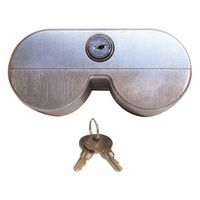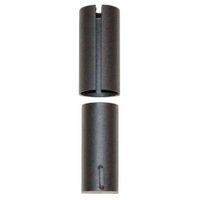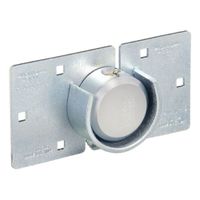Vehicle Locks
Vehicle Locks provide extra security to cargo and external controls on trucks, vans, and utility vehicles. Spare tire guards prevent theft of spare tires that are mounted to the outside of a vehicle. Van locks with a hasp secure doors on vans to provide extra security against equipment theft. Air br .....Read More
Frequently Asked Questions
What are the best vehicle locks for securing cargo on trucks and vans?
How do spare tire guards prevent theft on utility vehicles?
What types of van locks are most effective for preventing equipment theft?
How do air brake locks work to prevent unauthorized truck movement?
What are the benefits of using vehicle lock and bracket kits for cargo vans?
Are there specific brands of vehicle locks that are recommended for extra security?
How can I install a hasp lock on my van doors for added protection?


